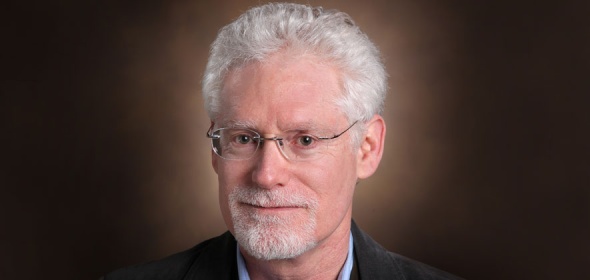Peter Buerhaus, RN, PhD, FAAN is a nationally recognized health services and workforce researcher and health care economist. He is widely known for his research on health workforce forecasting and development of quality of care measures. He currently is a professor at Montana State University College of Nursing, and director of the Center for Interdisciplinary Health Workforce Studies. We recently sat down with Peter to talk about the role of nurse practitioners, the aging baby boomer population and the trends affecting the health workforce.
There has been a lot of research and talk about a shortage of primary care doctors, in particular as the baby boomers age. How big of a problem do you think that is or could become?
The shortages of primary care physicians is a major concern. I’m always a little wary of dire predictions, but I’m concerned that we may be underestimating the number of physicians who could retire in the next 10-15 years. A lot of people say telehealth care and other resources could be used more efficiently, but that has been slow to develop and demonstrate how it will address the inadequate access to primary care facing many millions of Americans.
Justice Antonin Scalia's unexpected death could have major implications for health care, with the Supreme Court about to hear challenges to the Affordable Care Act, in addition to Friedrichs v. California Teachers Association. What implications could this have for health care?
Wouldn’t it have been nice if the Republicans had said to the president: “Send us your best candidate and we will exercise our duty to carefully review their qualifications and to suitably serve on the Supreme Court.” I think both political parties are responsible for the high degree of partisan politics and persistent conflict, but given the weight of so many important issues facing the Court, I think the nation is best served by decisions made by a full, nine-member court. We shouldn’t sacrifice good decisions for political advantage.
This election season there has been a lot of discussion surrounding health care and the Affordable Care Act. What impact could that have on the health workforce?
My hope is that the ACA will not be overturned. I would like the government to focus on improving the ACA and fix what’s weak and needs attention. I also worry that undoing the ACA could create fatigue among members of the workforce and be the flash point that causes some doctors and nurses and others to give up and say: “I was going to retire in five years, but I think I’ll go out sooner. I’ve had enough.”
In a quick snapshot, what is the recent and emerging national evidence on the contributions of nurse practitioners (NPs)?
The use of NPs to expand the nation’s primary care workforce is something we need to more effectively address as a nation. Here are some highlights of our latest NP research:
- There is growing evidence that NPs are relatively more likely to practice in rural areas where there are many uninsured people and where the needs for access to primary care services are the greatest.
- A new study shows that NPs achieve lower costs relative to physicians. Preliminary analysis shows that NPs achieve lower costs by submitting fewer claims to the Medicare program, and by billing for lower priced treatments and services than do physicians.
- Primary care physicians and NPs offer equal levels of quality of care, according to analysis of national Medicare claims data.
- NPs are more likely than primary care physicians to provide services to vulnerable populations, including those who qualified for Medicare due to a disability, are Black, American Indian, economically disadvantaged, do not speak English as their first language and are eligible for both Medicare and Medicaid.
What are some of the biggest trends affecting the health workforce now and in the future?
Over the next ten years we’re going to see every profession both taking on new roles and giving up traditional roles and activities in a search for finding out which professional offers the greatest value. As organizations are held economically accountable for the quality and costs of care provided to the patients and populations they serve, they will employ those who offer the most value. These forces will envelop the super specialist and cause changes all the way through the workforce to NPs, registered nurses, medical assistants, aides, nonprofessionals and the community based workforce. Eventually, I hope the shift to value based payment leads to practitioners doing more of what they do best considering their impact on quality, outcomes and costs.
The workforce will need to become comfortable with change and get used to rebalancing.
That could be good from an economic standpoint. I also think there is a chance this will help increase satisfaction and meaning in the work done by our workforce. The workforce is aging and has a great deal of skills and knowledge to pass on to the next generation. This is a perfect time to begin to accelerate making these types of transitions and rebalancing.
Learn more about the evolving health workforce in some of Peter Buerhaus’ recent research:
- Practice characteristics of primary care nurse practitioners and physicians (Nursing Outlook)
- Role of Geography and Nurse Practitioner Scope-of-Practice in Efforts to Expand Primary Care System Capacity: Health Reform and the Primary Care Workforce (Medical Care)
- Practice characteristics of primary care nurse practitioners and physicians (Nursing Outlook)
